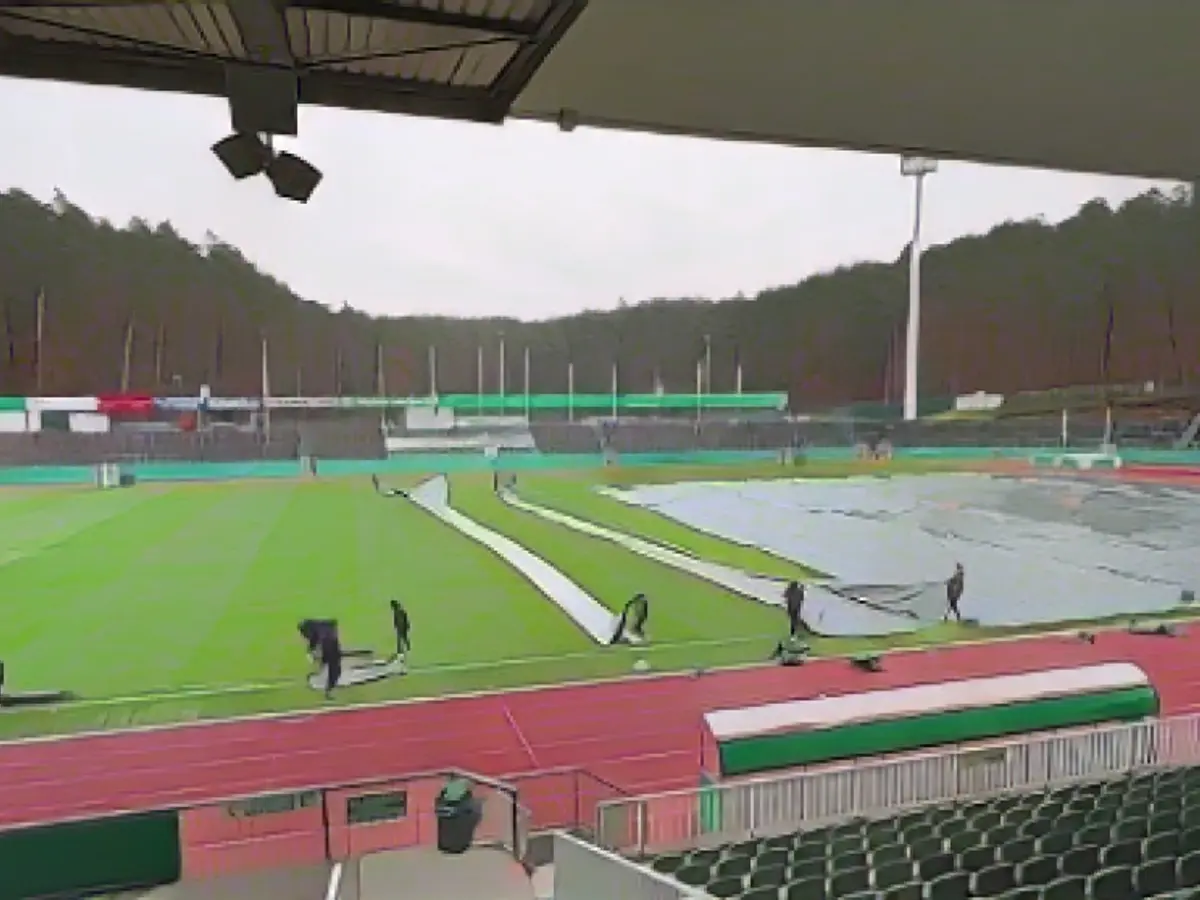St. Pauli's DFB Cup Venture: Overcoming the Frozen Pitch Challenge in Homburg
The derby dust has settled - now, it's full steam ahead for FC St. Pauli. In the cup, they face FC Homburg on Tuesday (8.45pm, Sky) for a place in the quarter-finals. The fourth-division leaders are leaving no stone unturned to guarantee optimal conditions for the match.
Fighting the Frozen Foe
The obstacle: FC Homburg's Waldstadion lacks pitch heating. The pitch has been under the icy grasp of temperatures as low as minus eight degrees for days. The Saarlanders have devised an unconventional solution to maintain pitch playability.
A dose of good news for St. Pauli, who are still reeling from a 2:2 draw against their rivals in the derby, despite leading 2:0. The Seasiders now eagerly anticipate the cup challenge, with a lucrative 1.7 million euros up for grabs in the quarter-finals. After enduring years of cup heartaches, the Kiez-Kickers last reached this stage in 2021/22, triumphing over Dortmund (1:2 against Union Berlin).
Head coach Fabian Hürzeler (30): "Derby frustration? Nah, not about the result. We need to move past it and focus on Homburg. We'll need our best performance to overtake them."
Homburg doesn't shy away from professionalism. Their cup victories against Darmstadt (3:0, Bundesliga promoted) and Greuther Fürth (2:1, second division) in rounds 1 and 2 point to their credentials. At the weekend, the Danny Schwarz-led side clinched the top spot with a 1-1 draw at Hoffenheim II.
Derby to Cup Transition: Easier Said Than Done?
Marcel Hartel, perennial favorite: "No problem at all. We've got a team with a mature mindset. We'll put 100% into it, whether it's Rostock or HSV. The stakes are high against Homburg, too."
Central defender Hauke Wahl shares the sentiment: "This is a golden opportunity. We'll treat it like any other game. No reason to dread Homburg."
Bonus Insights: Frozen Pitch Strategies
Teams playing on frozen pitches often employ strategies like:
- Inspection and Drainage: Regular checks of pitch conditions and effective drainage to remove water logged surfaces.
- Training Routines: Shifting training sessions to indoor facilities or artificial surfaces for cold weather adaption.
- Equipment Selection: Choosing gear and balls designed for optimal performance in icy environments.
- Player Safety: Prioritizing player welfare by educating them about risks and ensuring medical support on hand.
- Postponement Considerations: Monitoring weather forecasts to postpone matches if conditions become dangerous[1].
These tactics can help overcome the challenges presented by icy pitches, allowing teams to focus on performance and victory.
[1]: Enrichment data [2]: Base article








